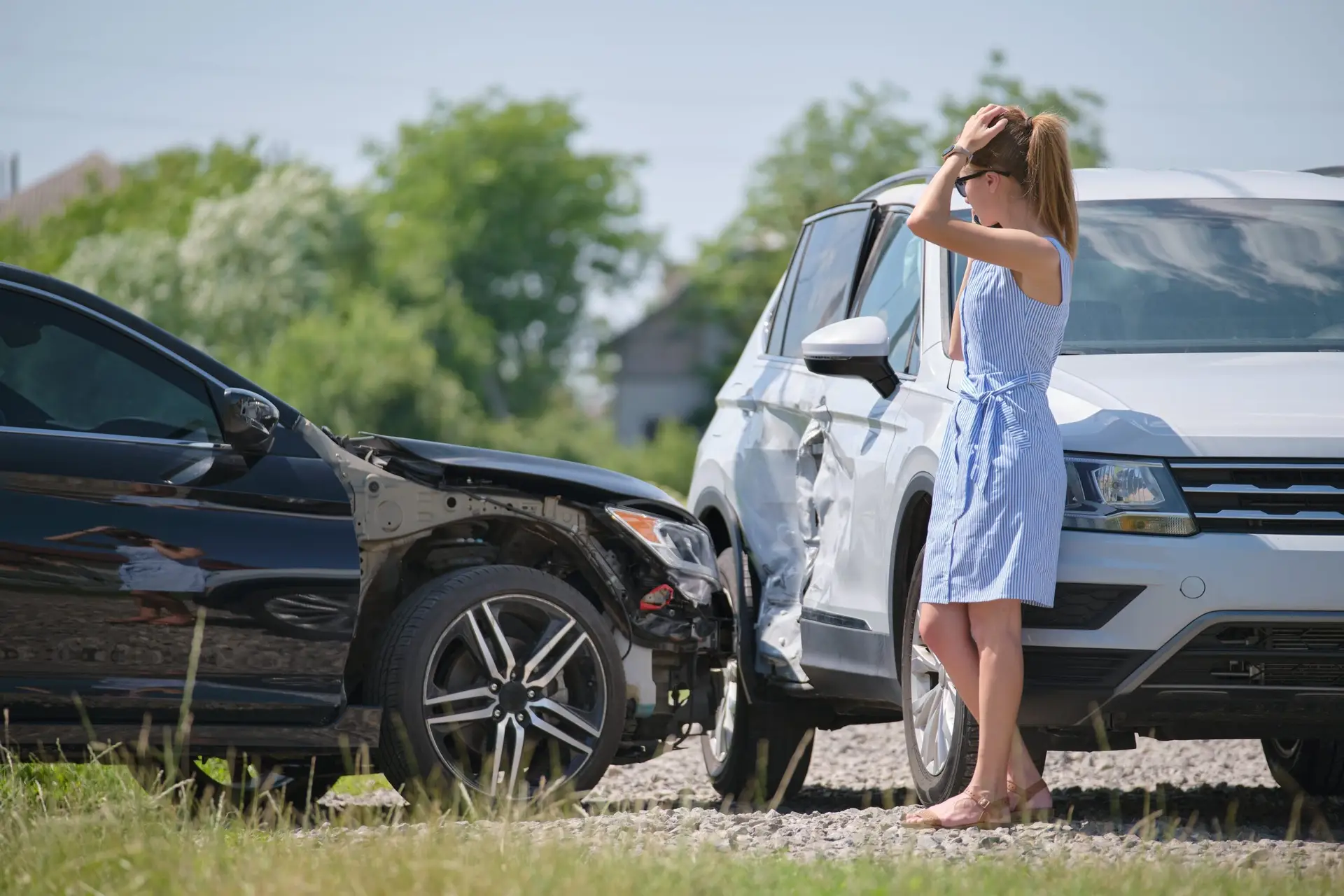
What Happens If I’m at Fault in a Car Accident in California? Legal and Financial Consequences Explained
What Happens If I’m at Fault in a Car Accident in California?
What happens if I’m at fault in a car accident in California? This question is common for drivers after a crash, and the answer involves insurance, legal liability, and financial consequences.
Fault System California: How Liability Works After a Crash
California is an at-fault or tort-based state. This means the driver who causes the accident is responsible for the resulting damages.
What Fault Means in California
If you’re found at fault, you (or your insurance company) may be responsible for costs related to:
- The other driver’s vehicle repairs
- Medical treatment connected to injuries
- Documented income loss related to the accident
- Claimed non-economic harm, such as pain and suffering
Your liability coverage is the first source for these payments, but if damages exceed your policy limits, you may face personal financial exposure.
Comparative Negligence
California uses a pure comparative negligence rule. Even if the other driver shares some blame, your percentage of fault reduces how much you’re required to pay—or how damages may be evaluated if you were also injured.
Insurance Consequences California: What Happens After You’re at Fault
So what happens if I’m at fault in a car accident in California from an insurance perspective? The consequences can be both immediate and long-term.
Rate Increases
Being at fault can lead to a possible increase in your auto insurance premiums, especially if the damages are serious or involve injuries.
Points on Your Driving Record
The DMV may add points to your driving record, depending on the severity of the violation. Too many points can lead to license suspension.
Lawsuits
If your insurance doesn’t fully cover the damages, the other driver may file a lawsuit against you for costs not covered by available insurance.
Explore how fault influences insurance claims and what to expect after a California accident.
Post-Accident Steps California: What to Do If You’re at Fault
If you believe you’re at fault, it’s essential to take smart steps to manage potential legal and financial issues.
- Stay at the scene and check for injuries.
- Call 911 if anyone is hurt or there is property damage.
- Exchange information with the other driver.
- Avoid admitting fault at the scene. Let the investigation determine liability.
- Notify your insurance provider promptly.
You should also consider speaking with a lawyer, especially if there are injuries or significant damages. Legal advice can help clarify your obligations and respond to disputed or contested claims.
Fault Consequences California: Legal & Financial Risks Explained
What happens if I’m at fault in a car accident in California depends on the circumstances, insurance coverage, and severity of the incident. However, being informed and proactive can help minimize the impact.
Even if you are partially at fault, California law allows damages to be evaluated even when fault is shared. At the same time, it’s important to understand your financial exposure and take steps to protect your legal rights.
Get Help If You’re at Fault in a Car Accident
Wondering what happens if I’m at fault in a car accident in California? Legal guidance can help you understand your liability, avoid common mistakes, and navigate insurer communications. Visit Traffic Accidents to access informational resources and connections to licensed California attorneys who handle accident-related insurance and liability matters.
Frequently Asked Questions (FAQs)
1. Can I still file a claim if I’m at fault?
Yes, especially if you have collision or medical payments coverage. However, your payout will be limited and may not include liability coverage.
2. Will my license be suspended for causing an accident?
Not usually, unless you committed a serious traffic violation or have multiple points on your record.
3. Do I need a lawyer if I caused the accident?
It’s highly recommended—especially if someone was injured, you’re being sued, or liability is disputed.
4. What if I was only partially at fault?
California’s comparative negligence law means you may still recover compensation, but it will be reduced based on your percentage of fault.
5. How long will an at-fault accident affect my insurance?
Typically, an at-fault accident stays on your record for three to five years, depending on your insurer and driving history.
Key Takeaways
- California is an at-fault state, and drivers who cause accidents must pay for damages.
- Comparative negligence may reduce liability, even if you’re partially at fault.
- Insurance premiums and legal risks increase after an at-fault crash.
- Taking smart steps after the accident can protect your rights.
- A lawyer can help minimize liability and defend against legal claims.
Free Accident Claim Review
Complete the form to have an attorney review your accident claimCOMPLETE THE FORM TO BE CONNECTED WITH AN ACCIDENT ATTORNEY
No Matching Partners at the Moment
Thank you for your inquiry but there are no matches for you at this time. Please come back later and try again.
Recent Posts
- How Do Insurance Companies Evaluate Injury Claims? Get Maximum Compensation
- What Injuries Qualify for Compensation in Personal Injury Claims? Navigating the Legal System
- What Evidence Is Needed for a Personal Injury Claim to Win Compensation?
- How Personal Injury Claims Work: Your Step-by-Step Legal Journey
- What Color Do Judges Like to See in Court for Personal Injury Cases?
Archives
- February 2026
- January 2026
- December 2025
- November 2025
- October 2025
- September 2025
- August 2025
- July 2025
- June 2025
- May 2025
- March 2025
- February 2025
- January 2025
- October 2024
- September 2024
- August 2024
- July 2024
- June 2024
- May 2024
- April 2024
- March 2024
- February 2024
- January 2024
- December 2023
- November 2023
- October 2023
- September 2023
- August 2023
- July 2023
- June 2023
- May 2023
- March 2023
- February 2023
- January 2023
- November 2022
- October 2022
- September 2022
- August 2022
- May 2022
- April 2022
- March 2022
- February 2022
- January 2022
- December 2021
- November 2021





